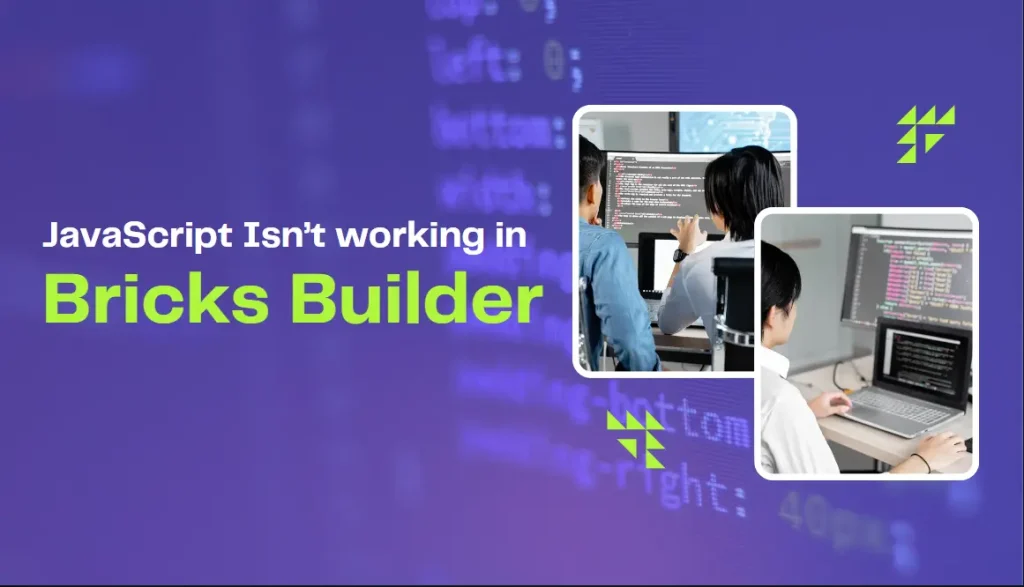Technology is best when it brings people together, but it must first work seamlessly to achieve that goal.
When developing websites using Bricks Builder, encountering issues with JavaScript functionality can be frustrating. This article dives into why your JavaScript might not work in Bricks Builder, providing practical solutions and insights.

Understanding the Role of JavaScript in Bricks Builder
JavaScript adds interactivity and dynamic elements to websites. In Bricks Builder, JavaScript enhances the experience by allowing custom scripts and third-party integrations. However, missteps in its implementation can lead to conflicts or outright failure.
Common Reasons JavaScript Fails in Bricks Builder
Improper Script Placement
- Scripts must be loaded correctly within the builder’s framework.
- Placing them in inappropriate sections like headers or footers without understanding their execution context can cause issues.
Dependency Conflicts
- Bricks Builder relies on specific libraries.
- If your JavaScript script includes dependencies already used by Bricks, it may cause version clashes.
Errors in the JavaScript Code
- Even a minor syntax error can prevent your script from executing.
- Debugging tools like browser dev tools can help identify these issues.
Caching Issues
- If caching is enabled, older versions of your scripts might get loaded instead of the updated ones.
Missing Event Triggers
Some Bricks components load dynamically, meaning they aren’t available when the script executes.
Proper event listeners can help mitigate this.
Practical solutions for Fixing JavaScript in Bricks Builder
Load Scripts Correctly
- Use the Custom Code Block in Bricks Builder to load JavaScript in the right place. Load scripts requiring access to DOM elements just before the closing tag.
Use Bricks Builder’s Dynamic Data
- Bricks Builder supports dynamic data injection. Use this to pass data seamlessly into your JavaScript files.
Resolve Library Conflicts
- Use unique namespaces or alias versions of libraries in your scripts to prevent clashes.
Debugging Tools
- Use tools like Chrome DevTools or JSFiddle for real-time testing and debugging your JavaScript code.
Enable Lazy Loading
- Use lazy-loading techniques for components that initialize late in the rendering process.
Effective best Practices for Avoiding JavaScript Errors in Bricks Builder
Validate JavaScript Code:
- Use validators like JSHint to check for syntax errors.
Minimize External Dependencies:
- Avoid using too many third-party libraries.
Clear Caches:
- Regularly clear browser and plugin caches.
Follow Bricks Documentation:
- Refer to the official Bricks Builder Documentation for implementation guidance.
Conclusion
When JavaScript isn’t working in Bricks Builder, the issue often lies in incorrect implementation, conflicts, or debugging oversights. You can effectively resolve these challenges by following best practices, leveraging the right tools, and understanding how Bricks Builder works. Stay updated with its official documentation to enhance your Bricks Builder expertise.
For more information you can visit other articles: “Best AI Headshot Generator“